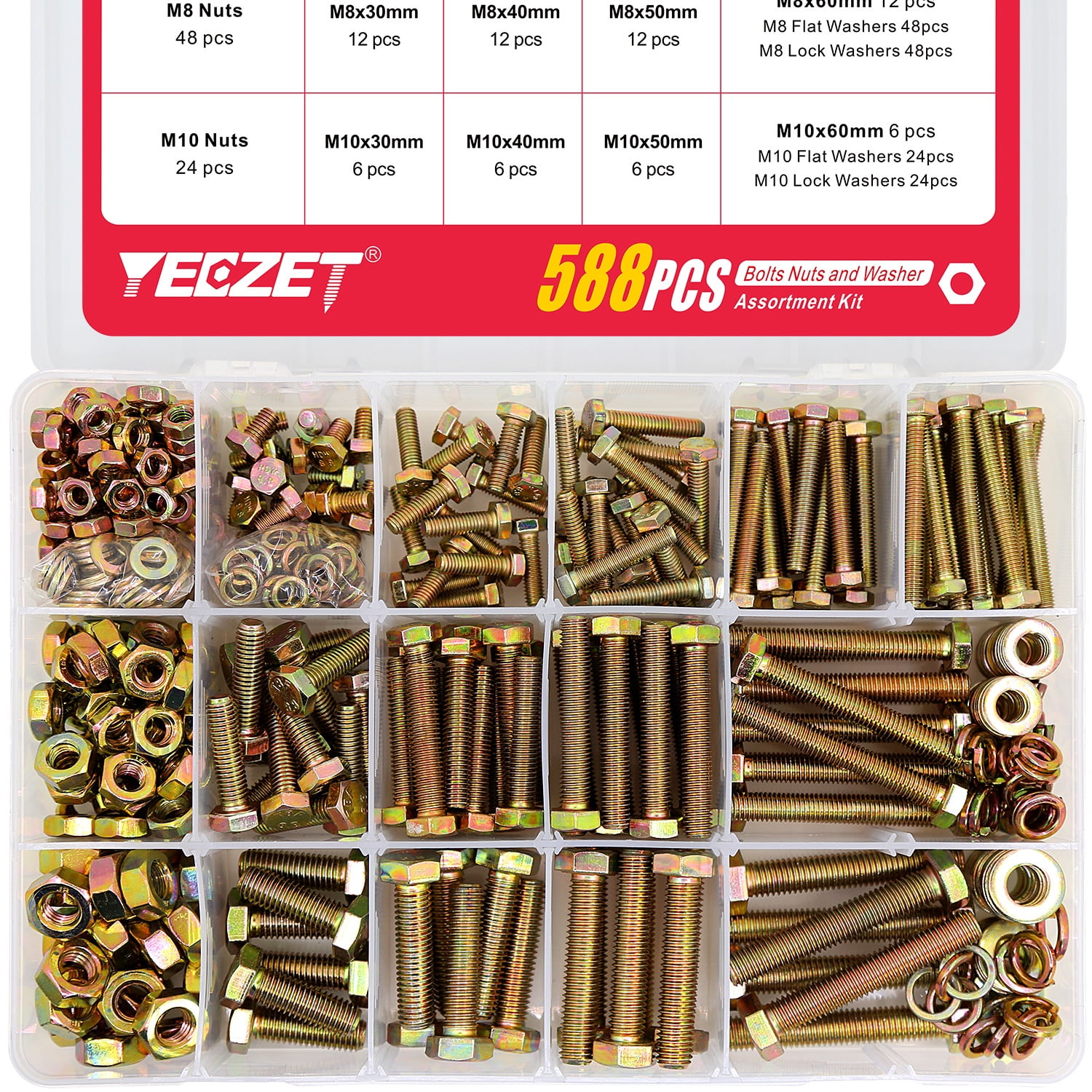Regarding DIY projects, automotive repairs, or heavy-duty construction, having the right tools in your toolbox is crucial. Among the most significant components in any toolkit are the unsung heroes: nuts and bolts. These fasteners secure everything from furniture to machinery, playing a key role in our daily lives. But with so many types and specifications to choose from, how do you know which ones are best suited for your specific needs?

In this complete guide, we will delve into the fascinating world of nuts and bolts. From understanding the basics to exploring the wide variety of options available, we will help you become familiar with the terminology and applications of different fasteners. Whether you are looking to embark on a home improvement project, engage in automotive repairs, or just want to enhance your knowledge, this article will provide you with a comprehensive overview of the types of nuts and bolts you may want to include to your toolbox.
Comprehending Fasteners and Fixtures
Nuts and bolts are fundamental components in multiple uses, ranging from informal DIY endeavors to robust construction tasks. A bolt is a type of connector that commonly has a tubular shaft and a head, while a nut is a hexagonal or square block with a hole in the center designed to fit onto the bolt's screwed end. When used together, they create a dependable fastening system that firmly holds components together.
In the construction and vehicle industries, the selection of the appropriate type of nut and bolt is important for ensuring durability. Each kind serves a unique function, whether it's a hex bolt for common use or a wood bolt for wood uses. Comprehending the specific characteristics and functions of these fasteners allows for best choices that meet the specific demands of a assignment.
As you commence your adventure into the world of nuts and bolts, it is crucial to know the principles, including thread types, materials, and covers. This understanding not only assists in choosing the suitable fastener for a particular task but also ensures that projects are completed with security and efficiency in mind. Getting yourself with these factors serves as a solid base for excelling in fastener uses across different areas.
Types and Applications
Nuts and bolts come in a variety of categories, each engineered for specific uses. Standard hex bolts are widely used for general fastening tasks, while carriage bolts are perfect for wood applications due to their rounded head and flat neck that stops rotation. Lag bolts, on the other hand, are perfect for heavy wood connections and are regularly found in construction projects. Understanding these categories allows you to select the appropriate fastener for your job's requirements.
In car repairs, specialized nuts and bolts are often required. For click here for more info , metric fasteners are typical in European vehicles, while American-made vehicles may use standard sizes. Furthermore, https://rentry.co/dyebqmvo provide enhanced security by preventing loosening under vibration, making them suitable for machinery and engine applications. Identifying the specific needs of automotive work can greatly improve efficiency and safety.
When dealing with different substances, the choice of fastener can make a substantial difference. For metal-to-metal connections, using bolts made from strong steel can ensure durability, while brass bolts may be more suited for electrical applications due to their corrosion resistance. In outdoor environments, choosing rust-resistant options like stainless steel or galvanized fasteners is crucial to prolong the lifespan of your projects. By aligning the kinds of nuts and bolts with their proper applications, you can enhance performance and reliability.
Components and Coatings
When choosing nuts and bolts for a project, the choice of substances plays a critical role in ensuring durability and strength. Carbon steel is one of the most commonly used materials due to its high tensile strength and affordability. For uses requiring resistance to oxidation and deterioration, inox is a preferred option, as it preserves its properties in harsh environments. Bronze and titan are also popular choices; bronze offers excellent corrosion resistance and is often used in situations where visual appeal matter, while titan is known for its low weight and exceptional strength, making it ideal for aviation and high-performance automotive applications.
The finish of a bolt or nut can significantly affect its functionality and durability. Zinc plating is frequently used to provide a layer of corrosion protection, making it suitable for various indoor and outdoor jobs. Hot-dip galvanized fasteners go a step further, featuring a heavier coating for enhanced protection against moisture and other elements. In contrast, black oxide finish is more about appearance and slight rust protection but is not suitable for extreme environments. Understanding the pros and cons of each finish helps in making informed decisions based on the specific requirements of your task.
Additionally, specialized coatings, such as polymer or PTFE, can enhance the performance of fasteners and hardware. Locking nylon nuts are designed to prevent unintended loosening due to vibration, making them essential for automotive and equipment applications. Meanwhile, fasteners with PTFE coatings offer superior protection to corrosive substances and elevated temperatures. Investigating these substances and coatings goes beyond performance; it adds to the safety and durability of the fastening assembly in any construction or repair task.
